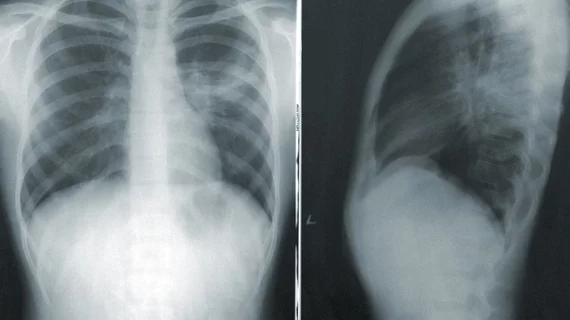AI spots pneumonia in chest x-rays of COVID-19 patients
Researchers have developed an AI algorithm that can scan the chest x-rays of COVID-19 patients for signs of pneumonia. In one instant, it even detected the virus in an asymptomatic patient who was getting the chest x-ray for reasons completely unrelated to COVID-19.
“We would not have had reason to treat that patient as a suspected COVID-19 case or test for it, if it weren’t for the AI,” Christopher Longhurst, MD, UC San Diego Health’s chief information officer and associate chief medical officer, said in a statement. “While still investigational, the system is already affecting clinical management of patients.”
Radiologists at UC San Diego Health fist developed the AI model in 2019, hoping it could lead to improvements in the detection of pneumonia. The algorithm was trained with total of 22,000 notations.
“Pneumonia can be subtle, especially if it’s not your average bacterial pneumonia, and if we could identify those patients early, before you can even detect it with a stethoscope, we might be better positioned to treat those at highest risk for severe disease and death,” Albert Hsiao, MD, PhD, a radiologist at UC San Diego Health, said in the same statement.
Hsiao’s team quickly realized that their model could be used to improve care for COVID-19 patients—and it is now being put to the test in a clinical research study funded by Amazon Web Services.
“As an academic medical center, we’re always looking for ways to bring innovations to the bedside,” Longhurst said in the same statement. “Although we need more studies to evaluate the effectiveness of this algorithm and improve its accuracy as we see more patients, what we’re seeing so far is evidence that this approach could be a powerful tool for health care providers to provide more reliable, early diagnoses of COVID-19 and other infections.”

